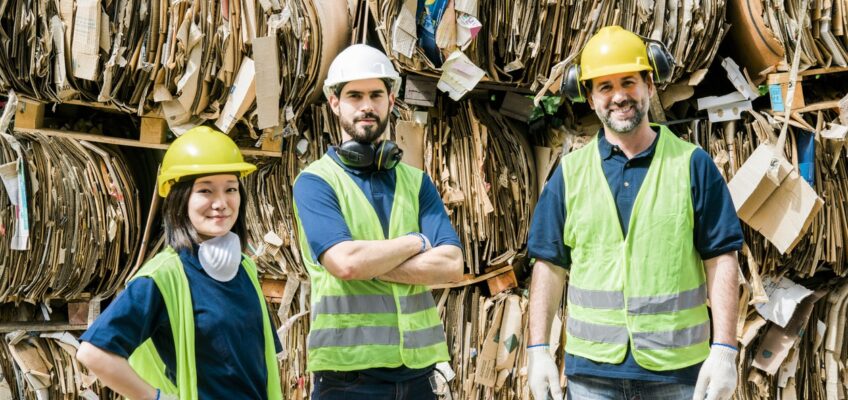A new report from the Global Anti Incineration Alliance (GAIA), finds that zero waste creates 200 times more jobs than landfills and incinerators, far more than the number of jobs created by landfills and incinerators.
The report is called “Zero Waste and Economic Recovery: The Job Creation Potential Of Zero Waste Solutions.”
GAIA, based in Berkeley, California, is a worldwide network of activists fighting against garbage incineration. With this publication, the organization has produced another important report on the job creation potential from implementing Zero Waste policies and programs. The jobs creation report continues GAIA’a series of excellent and well-timed reports published in 2020: “Chemical Recycling a Distraction, Not a Solution,” “The Zero Waste Master Plan,” and, “False Solutions to the Plastic Pollution Crisis.”
The latest report presents an important statement about the inclusive nature of Zero Waste and the potential impacts it can have on the climate, recycling workers, communities, and small businesses.
“Zero Waste and Economic Recovery: The Job Creation Potential of Zero Waste Solutions” is the first international study of the direct economic benefits of comprehensive recycling, reuse and composting. Data gathered from 16 different countries shows that almost 3 million jobs can be created through Zero Waste, which amounts to thousands of jobs for each city that practices Zero Waste. The report’s findings are especially important right now, as job losses due to the COVID 19 pandemic have impacted workers across the globe.
By using the jobs per 10,000 tons of materials formula developed by Brenda Platt of the Institute for Local Self-Reliance, the data shows that tipping garbage in landfills or incinerators creates just under 2 jobs per 10,000 tons of materials. Zero Waste approaches, by contrast, offer dramatic increases in employment opportunities. Further, most of these Zero Waste jobs can afford to pay workers a decent standard of living.
Key findings of GAIA’s report include:
- Reuse creates almost 200 times as many jobs as landfills and incinerators.
- Recycling creates around 60 times as many jobs as landfills and incinerators.
- Remanufacturing creates almost 30 times as many jobs as landfills and incinerators.
Other important conclusions in the report:
- Economic goals align with environmental goals; the waste management strategies that create the most jobs also deliver the best environmental outcomes.
- Zero waste systems offer more desirable employment opportunities. These jobs tend to utilize skills beyond basic manual labor, provide higher wages, offer more permanent positions, and improve overall quality of life.
- As the job creation potential of zero waste processes is comparable across geographies, governments across the globe have an opportunity to benefit from the implementation of zero waste solutions as part of their COVID-19 economic recovery strategy.
Average jobs per 10,000 tons of materials are broken down as follows:
- Reuse – 51 jobs/10,000 Tons Per Year (TPY)
- Semi-mechanized recycling – 321 jobs/10,000 TPY
- Mechanized recycling – 17 jobs/10,000 TPY,
- Composting – 6.6 jobs/10,000 TPY,
- Landfill and incineration – 1.8 jobs/10,000 TPY
“Zero Waste and Economic Recovery: The Job Creation Potential of Zero Waste Solutions” also has two valuable appendices: a detailed description of the methodology used to gather and analyze data, and a list of References that serve as a valuable bibliography of documents and organizations active in the Zero Waste movement.
Photo credit: Portra via iStock




